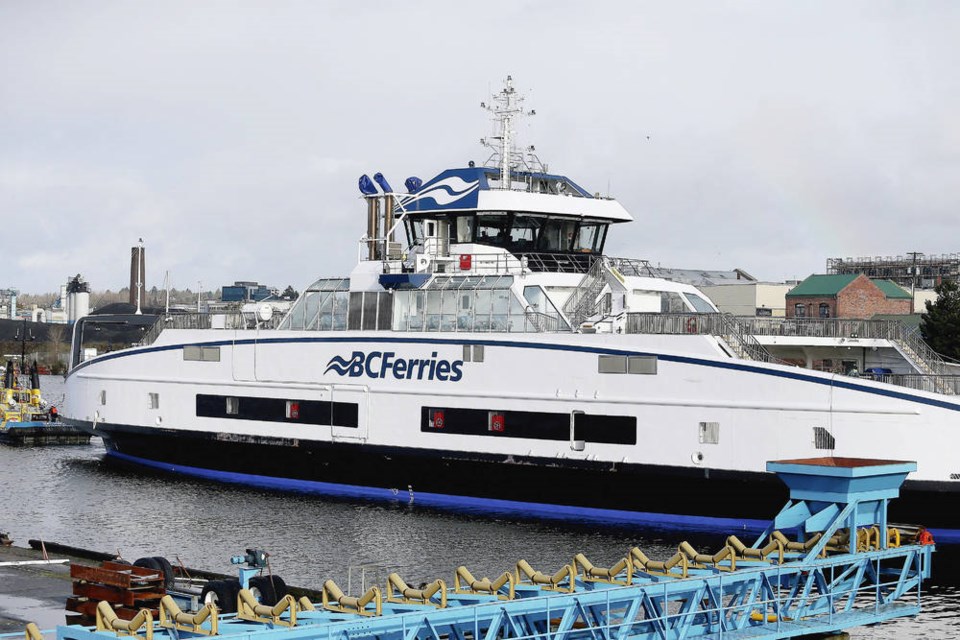B.C. Ferries is seeking federal funding to pay for an on-shore charging infrastructure project expected to reach about $280 million in order to run Island-class ferries fully on electricity.
A B.C. Ferries spokesperson did not provide price details on Tuesday, saying a proposal is being developed.
But information from the ferry corporation included in Nanaimo council’s agenda said that the total cost to convert up to 18 terminals relating to eight routes and six hybrid Island-class vessels is estimated at about $282 million.
The project would include infrastructure to supply terminals with enough electricity to power the electrified vessels.
It would also include terminal electrical upgrades to accommodate a rapid charging.
Vessels would be improved to allow them to operate on electricity, including installation of additional batteries .
B.C. Ferries is canvassing organizations, including municipalities, for letters of support as it prepares to respond to a federal opportunity for innovative projects aimed at helping Canada’s economy recover from the COVID-19 pandemic.
“B.C. Ferries will be seeking federal stimulus funding to accelerate the program to provide shore charging infrastructure sooner and associated upgrades to the vessels,” B.C. Ferries spokeswoman Deborah Marshall said in an email.
The first two Island-class ferries, Island Aurora Island Discovery, were unveiled at Point Hope Maritime in February 2020. They are operating mainly on diesel fuel but were designed to be fully electric once plug-in charging for their batteries is in place.
Four additional vessels are expected to arrive late this year or early in 2022.
Mark Collins, B.C. Ferries president and chief executive, estimated last year that the infrastructure would be in place in five to 10 years.
Island-class ferries are used on smaller routes. They have been designed to be quiet in the water, and have low emissions.
Nanaimo council voted unanimously in favour of providing a supporting letter to the federal government.
cjwilson@timescolonist.com



